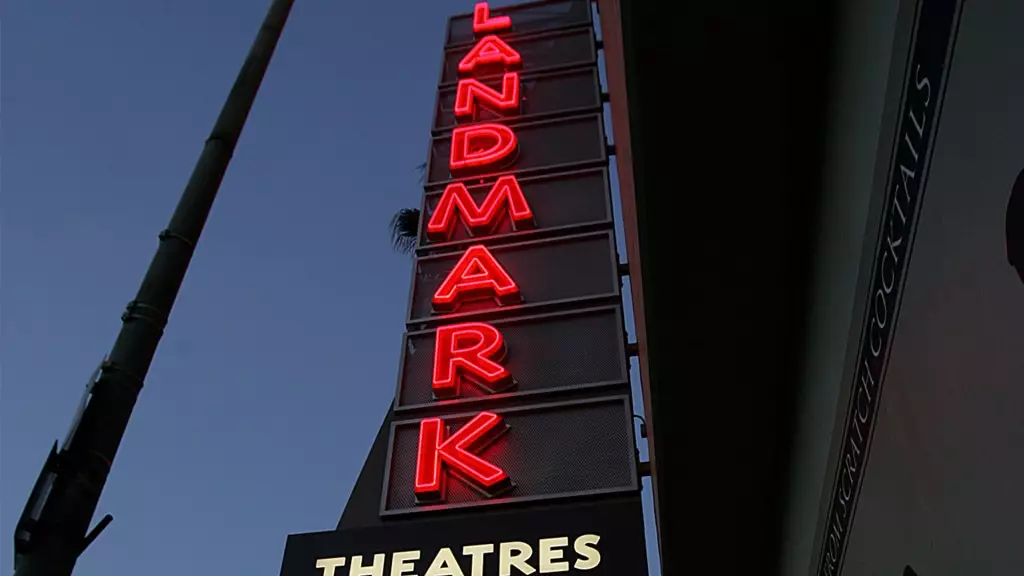The recent foreclosure auction held for properties associated with Charles Cohen has unveiled a complex narrative in the realm of real estate and the entertainment industry. With Creditor Fortress as the sole bidder, this auction not only raises questions about the financial stability of Cohen’s holdings but also serves as a reflective moment for the independent film distribution sector, particularly concerning the operations of Landmark Theatres and Curzon. This article delves into the implications of recent developments, exploring the broader ramifications for cinema and real estate.
Creditor Fortress’s strategic decision to bid $5 million for Curzon—the U.K. arthouse theater chain and distributor—signals its intent to strengthen its position in a market marked by uncertainty. This acquisition is particularly notable given Curzon’s reputation as a well-regarded entity within the arthouse scene. However, the fact that Fortress was the only bidder at the auction indicates a lack of confidence from the market regarding the financial viability of Cohen’s assets. If any indication can be drawn from this outcome, it suggests a prevailing skepticism about the future of the business entities tied to Cohen, particularly in a climate where the pandemic’s aftermath continues to exert pressure on the film and entertainment industry.
While Fortress placed a bid on Curzon, Landmark Theatres did not garner any interest at the auction and appears set to remain under Cohen’s ownership. This might be seen as a positive outcome considering the alternative, which could have involved losing the chain altogether. However, insiders have whispered about the lack of investment and deteriorating operational strategies that have plagued Landmark since Cohen’s acquisition in late 2018. The closure of crucial locations, such as Landmark LA, has not only hampered its visibility but also contributed to a growing sentiment of discontent within the indie distribution community. This raises significant concerns regarding whether maintaining control of Landmark translates into a sustainable path forward.
The pandemic served as a catastrophic blow to cinemas and has undeniably altered the landscape of theater-going experiences. However, the struggles faced by Landmark underpin a broader discourse about the strategies employed by ownership and management teams. It’s worth examining whether the operational decisions made during Cohen’s tenure will lead to recoveries or further declines, especially in light of the significant financial losses reported. According to revelations from Fortress, Landmark has racked up over $14 million in net losses, which complicates any claims of stability or impending recovery.
The legal skirmish between Fortress and Cohen illustrates the high stakes involved in this drama. Fortress initially lent Cohen $534 million, with a suite of properties, including Landmark and Curzon, acting as collateral. Following claims of default, Fortress sought recourse through the court system, prompting the auction. The outcome thus far hints at Fortress’s determination to regain its investment and offers a reflection of the raw realities of high-stakes financing in the competitive world of real estate and entertainment. The fact that Fortress established a credit bid totaling $148.7 million emphasizes the financial gravity of the situation and the lengths to which lenders will go to protect their interests.
As Cohen navigates the aftermath of the auction, the independent distribution community will likely keep a vigilant eye on whether operational changes are implemented and whether Landmark can be revitalized. The perception of Cohen moving properties out of his name to evade liability charges adds a layer of scrutiny on his future decisions. This intricate web of financial maneuverings not only reflects an individual’s desperate attempts to retain control but opens up discussions on accountability and long-term viability for entities in the harrowing educational shift following COVID-19. The road ahead remains fraught with challenges, but how the parties involved respond could define the future of arthouse cinema and landscape of U.S. theater ownership.
The unfolding events surrounding the auction of Cohen’s cinema properties encapsulate the risks present in both entertainment and real estate. With investors, operators, and audiences alike watching closely, the outcome of these tribulations remains uncertain, posing pivotal questions about the future of cinema in a post-pandemic world.

